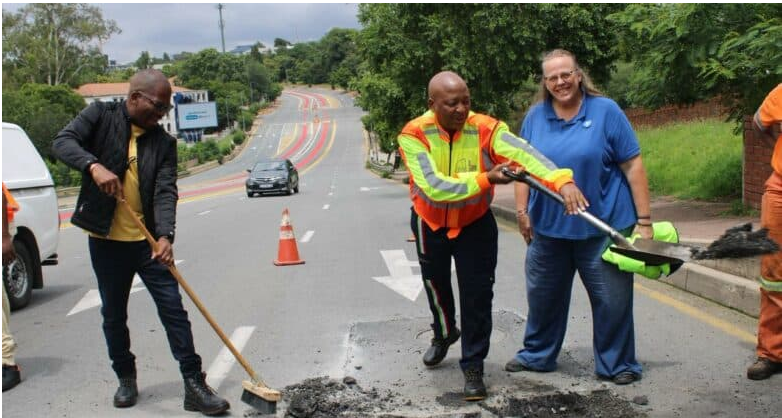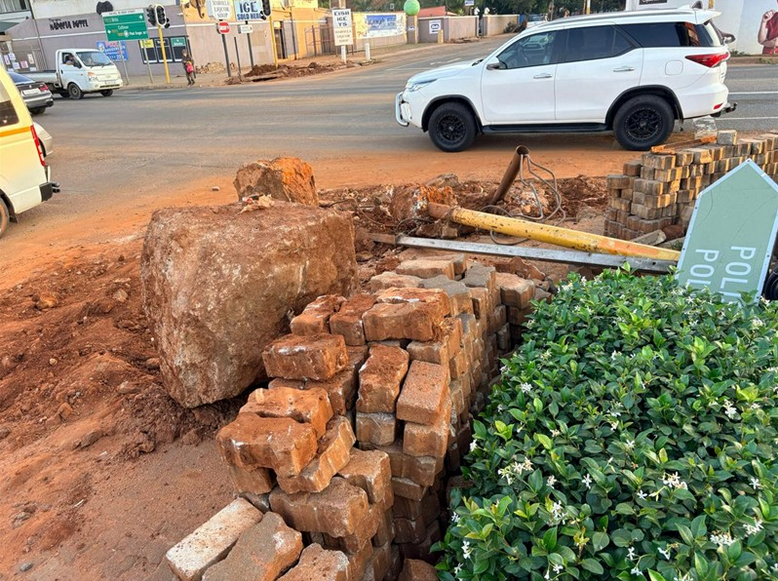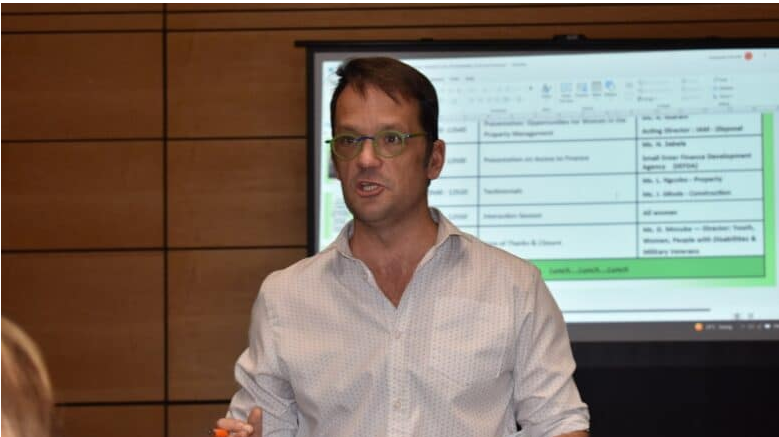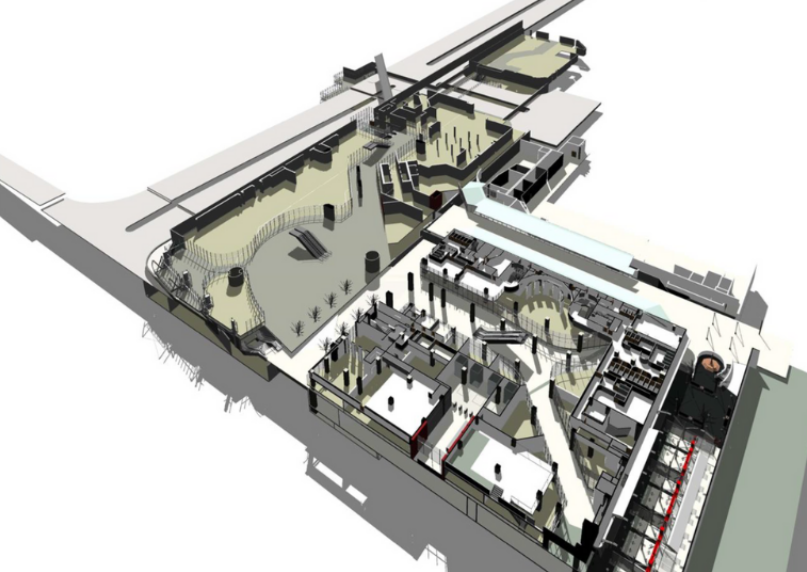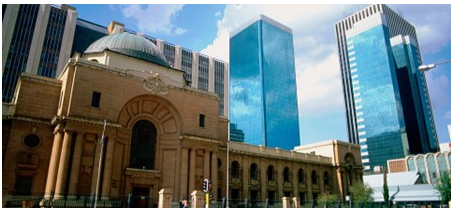Louis van der Watt on 25 years in property

Advertising
13-02-2020
Read : 301 times
Moneyweb
Source
Atterbury co-founder gives an insider’s view of the company, which has become a major player in local property and expanded offshore
SUREN NAIDOO: Welcome to Moneyweb’s all-new property podcast, which we hope to be a regular feature. And, to kick off this new initiative our first guest is none other than Louis van der Watt, the co-founder of innovative Pretoria property group, Atterbury. The group has been involved with some of the most groundbreaking property projects in South Africa, as well as Africa, in addition to investing in Europe more recently. Welcome, Louis, it’s a pleasure to have you.
LOUIS VAN DER WATT: Thank you very much.
SUREN NAIDOO: I understand you are a CA, where did it all start, 25 years in the game, you started at Deloitte, but in the property arena?
LOUIS VAN DER WATT: I started at Deloitte as a CA, I wasn’t a very good CA, to be honest, and I was on the audit of a company called Infotech, which is an IT company and which was led by Francois van Niekerk. I was on the audit team and in my first or second year we started talking about property and an opportunity came and I resigned from Deloitte because Francois was prepared to back me in a property venture. We then jointly formed Atterbury and started with property in Pretoria.
SUREN NAIDOO: So, you didn’t have any property experience before that, what made you opt to go into property?
LOUIS VAN DER WATT: I always liked property. As a student I ventured into apartments that you let to other students and I bought one or two stands. So I was always in property but obviously not commercial property, I never had the money for that. But I always liked property and Francois shared the same interest and when we got together it was a natural fit, and we started Atterbury.
SUREN NAIDOO: I gather you would have had a lot of approaches over the years for buyouts and that sort of thing but you have also been involved in several listed funds and other property ventures in South Africa, do you see it as somewhat of a family business and to keep it going?
LOUIS VAN DER WATT: No, I think it’s a different philosophy, we’ve dealt with Hyprop many years ago when we sold a big shopping centre portfolio to them and then we listed Attacq. I soon realised that the listed sector is driven by something different to a privately-owned property business. We make decisions for the right reasons – we’ve got a long-term view… Those companies are usually driven by the share price, the analysts ask them questions and if they don’t like it the share price starts falling and I have often seen that those guys make the wrong decision because that is what the shareholders (want)…will influence the share price.
I think we soon realised that property is a long-term gain, listing is more short term, every six months you have to report and if the financials are not great, they nail you. With us having a private company we make long-term decisions, we’ve got outside shareholders and they understand us and they back us, and I think it has proven right over the years. We don’t give into short-term fashions and fluctuations we stick to our knitwear and our track record has proven that.
SUREN NAIDOO: Fantastic. Over the last ten years Atterbury has secured some major coups, one of the biggest was the commercial development rights around Waterfall City, obviously that’s now being led by Attacq, which you played a role in establishing, and it’s listed on the JSE, tell us more about this. I know it’s over ten years ago, but it was a coup.
LOUIS VAN DER WATT: I’ve told the story many times before, but I think the nice opportunity was when we competed against one or two of the far bigger investment property companies and the Mia family always told the story afterwards and they said when the guys came to give their final presentation and the other two companies we competed with, some people flew in from London and others from Israel, and then the Atterbury people came with their bakkies from Pretoria, they realised that these guys are here to stay. It’s in our interest to develop that, to keep that and I think that’s what swung their decision, they backed us because, as I said to them, we’ve got nowhere else to go, we haven’t got any alternative and doing that development is very important to us. I think it has proven right, in a very short period we have rolled out quite a bit of square metres of offices, Mall of Africa, I think the Mia family (who own the land) was very happy because they remained in, they get a percentage of the income. So I think the investment and the development worked for them and for us.
SUREN NAIDOO: Atterbury, of course, is still involved there, in the Deloitte building, and you still own a small stake in the Mall of Africa, are you looking at other investments there?
LOUIS VAN DER WATT: Obviously, Waterfall is a very good piece of property, it’s one of the few remaining properties in Gauteng that has been planned properly. I don’t think you will ever sit with the congestion of Sandton, for instance, because we’ve planned that to accommodate
1.5 million square metres of retail. So it is a very compelling position for big corporates like Deloitte to consolidate, they have combined their Johannesburg and their Pretoria office in Waterfall. We did the same with PwC, so there’s a very compelling story there and we will always market Waterfall and try to secure tenants and then do a joint venture with Attacq to develop for them, like we’ve done now with Deloitte.
SUREN NAIDOO: I’m sticking on Waterfall a bit, Old Mutual had a piece of land that they wanted to develop Zonk’Izizwe, they weren’t one of the people bidding for the Mia land per se, but that was part of the coup I think as well because after developing Gateway in Durban they were talking up Zonk’Izizwe (in Midrand) and it just didn’t work out because you had better positioning. But it’s interesting, some of these older insurance-influenced developers have toned down a bit on their property side and I see Atterbury is involved in co-developing some of their property now.
LOUIS VAN DER WATT: We don’t have the balance sheet, the cash flow or the income that those big insurance companies have, so it’s always a natural fit to have the more entrepreneurial, smaller, private companies putting the schemes together, driving the process and using the balance sheet of the bigger companies. We pride ourselves on the partnerships that we formed over the last 25 years and I think Old Mutual is a very good example of that, although we have competed at Zonk’ Izizwe and Mall of Africa, we are now in a partnership where we developed that industrial land next to the Cape Town Airport, it was the old King David Golf Club, and next to the Old Mint (near Centurion) we are doing a development with Old Mutual. So we are now partners where we drive the process and they provide the balance sheet, the funding, and I think it’s a partnership that works for both.
SUREN NAIDOO: Are you open to talking about what your biggest lesson was in property, maybe not going into the nitty-gritty but what didn’t work out for you, what was one of your biggest lessons?
LOUIS VAN DER WATT: I think there are two things, the one is that we have learnt how to partner, the biggest mistake, and I have seen it with most of the big listed companies, they are a bit arrogant, they’ve got certain needs and they want that filled and in a partnership they will always walk in and say this is what we want. If you haven’t got the money you learn how to accommodate somebody else’s need in order to do a deal. So we would go into a partnership, first listen to the other guy, what does he want out of it, and then try to structure the partnership around that. Once you address the other guy’s needs, then it’s a proper partnership and it works for both. So I think the one lesson that we’ve learnt over the last 25 years is how to do partnerships. I think you can phone most of our partners and they would be very happy to do another deal with Atterbury. So I think that’s one lesson.
The other one is to stick to what you believe in, to not deviate from what you are good at. Empowerment was a big thing, over the last 25 years we had a lot of pressure to do empowerment deals and we didn’t really adhere to that, not because we don’t believe in empowerment, I think there are very few companies that do as much for empowerment as Atterbury does. We’ve got over 600 students who went through university, Afrikaans students who couldn’t afford to study. The employees of Atterbury are the shareholders. So we believe in empowerment but not the way government describes it. We think that’s completely wrong.
I don’t think empowerment should be colour-based. Empowerment should be for people who need money, or they need skills, or they need to get that, that’s real empowerment. I think by doing it that way we have been very successful, we sit with a loyal base of people who work for us, they are all shareholders. I think the likes of SAA and Eskom have shown lately that the empowerment that the government tried to enforce on people didn’t work. We didn’t listen to that and now I think we pick the fruit of that.
We sit with a very strong company and we’ve done a lot of what the government regards as empowerment deals, we entered into a partnership with Tebogo Mogashoa two years ago, which in my mind wasn’t a BEE deal at all, it’s another businessman with good opportunities, who has a skillset we needed, we have a skillset he needed and we made a natural partnership. So whether it adhered to the charter or what government wanted was irrelevant, it was a partnership that made sense and it worked very well for both of us. We worked well together, we became very good friends and I think that’s the way it should be.
SUREN NAIDOO: Obviously you are involved in a lot of big projects in South Africa at the moment, can you give us a teaser of what’s your next big thing? Are you looking at developments elsewhere, I know you have increased your presence in Cape Town in recent years, are you looking at other parts of the country that you might not have a presence in currently?
LOUIS VAN DER WATT: I don’t think so, we are focused on the Western Cape, we’ve opened offices in Stellenbosch. We’ve got a very good guy running that office for us and he made inroads in the Western Cape in the last four or five years that I can’t believe. So it’s become a big investment focus for us and then, obviously, Pretoria and Johannesburg. We like to be close to metropoles where the economy is there. I’m not saying it’s wrong to do a development somewhere in the sticks, there are a lot of guys who do shopping centres but that’s not our expertise, it’s not our focus area, we understand the bigger metropoles and in and around that and that’s where we are going to focus.
There are no new developments, apart from developments inside the precincts we already own. So we are not planning on buying something new now. We sit with a lot of investment in precincts and for the next couple of years you can roll that out. We fortunately sit with partners, co-investors in Atterbury, which is Rand Merchant Bank Holdings, and they understand that they are helping with the funding of that. They are also patient, they understand that this is a longer-term investment, so we are very comfortable with that and I think they are very comfortable with that.
Apart from that we want to grow the Europe presence, as I said, there are a couple of new shopping centres coming on stream in Cyprus, in Serbia, in Romania especially. We like Romania a lot, it’s an economy that’s strong, it’s at the beginning phases and that’s why most of the South African property companies are invested there. Very few of them do developments there, most of them buy completed products but that’s where we are different, we partner with a developer and we develop our own stock. We are going to continue with that, that’s what we have been doing for 25 years, we just do it now in different areas but it’s still the same recipe.
SUREN NAIDOO: Fantastic Louis, I really appreciate your time. That was Louis van der Watt, the co-founder of Atterbury Property Group.
Recent News
Here are recent news articles from the Building and Construction Industry.
Have you signed up for your free copy yet?
